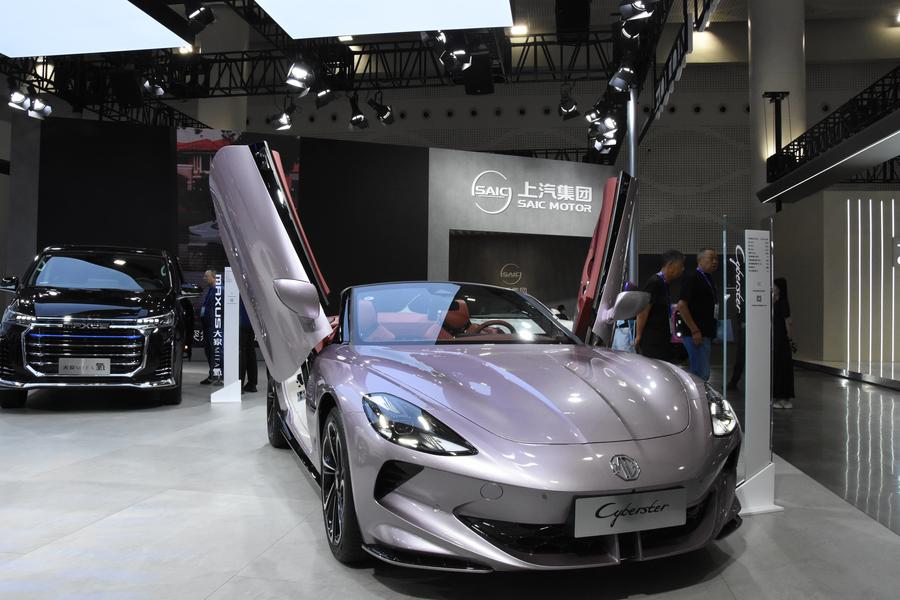This photo shows an MG Cyberster vehicle of China's car manufacturer SAIC displayed at the 2023 World New Energy Vehicle Congress in Haikou, south China's Hainan Province, Dec. 7, 2023. (Xinhua/Xia Tian)
SHANGHAI, June 13 (Xinhua) -- Major Chinese carmaker SAIC Motor said on Thursday that it was "deeply disappointed" by the European Commission's plan to impose provisional tariffs on China-made electric vehicles, urging the agency to carefully consider its decision.
The pre-disclosed provisional duties range from 17.4 percent to 38.1 percent, in addition to the standard 10 percent vehicle duty already in place, and are due to take effect from July 4, the European Commission announced on Wednesday. SAIC Motor would be subject to the highest tariff rate.
"We are deeply disappointed by the European Commission's decision. The relevant measures not only violate the principles of market economy and international trade rules, but may even have a greater negative impact on the stability of the global automotive industry chain and China-EU economic and trade cooperation," the carmaker said in the statement.
Free trade and fair competition are key to promoting global economic prosperity and sustainable development, it said.
The carmaker called on the European Commission to carefully consider its decision and hold constructive dialogues with global automotive industry partners, including China, to find solutions for fair competition and sustainable development.
SAIC Motor said it hopes that the EU will listen carefully to the voices of Chinese and German auto companies, resolutely avoid artificially erecting trade barriers for new energy vehicles, and effectively safeguard the market environment for fair competition.
Only through open dialogue and cooperation can the parties overcome challenges and achieve win-win results, it said.
The carmaker said imported vehicles are popular in Europe, and they rely on technological innovation rather than government subsidies.
Over the past decade, SAIC Motor has invested nearly 150 billion yuan (about 21.1 billion U.S. dollars) in research and development in core technology areas, such as new energy vehicles and intelligent connected vehicles, and has more than 26,000 valid patents.
The Shanghai-based carmaker, which has joint ventures with Volkswagen and General Motors, said it plans to set up green factories in Europe and bring China's new energy vehicle technologies there.
"With positive measures, we hope to promote China-European cooperation in the field of new energy vehicles and jointly promote the global transition to a low-carbon economy," it said.





 A single purchase
A single purchase









